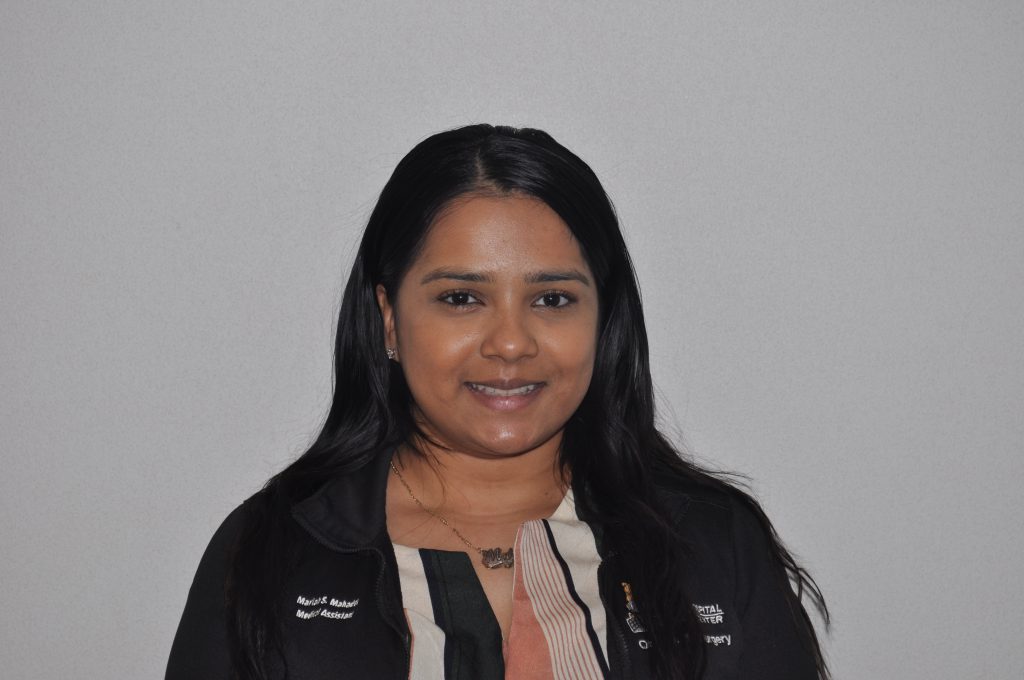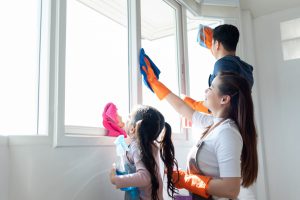This month we are proud to shine our employee spotlight on Mariah Mahadeo, Clinical Coordinator in the TJH Department of Orthopedics.
Mariah has been with Jamaica Hospital Medical Center for three years. She grew up in Valley Stream, Long Island and attended P.S. 161, Lawrence Middle School and graduated from Lawrence High School in 2010. Mariah obtained her Associates Degree in Liberal Arts in 2016 from Nassau Community College and is currently working on her Bachelor of Science degree in Healthcare Management at the University of Phoenix. Although Mariah grew up in a family that is in the food industry her passion has always been healthcare because she enjoys helping people.
Mariah recently got married. Her family is the most important aspect of her life. They have always supported her endeavors and encouraged her to work hard to attain her goals. Her work and her studies take up most of her time but when she does take a break, she enjoys spending time with family and friends. One of her favorite things to do with them is cooking and trying new recipes. She enjoys going out to eat as well, especially to Mexican, Italian and Asian restaurants. When she is able to get away from New York, her favorite places to vacation have warm weather and nice beaches. She has been to Trinidad which is la second home to her because this is where her family is from. Mariah has also been to Mexico and the Bahamas and one day hopes to go to Indonesia.
Mariah enjoys working at Jamaica Hospital because of the great patient caret hat is provided. She also appreciates that her colleagues make her feel like a valued member of their department.
We are very happy to have Mariah on our team and look forward to her continuing with us for many more years.
All content of this newsletter is intended for general information purposes only and is not intended or implied to be a substitute for professional medical advice, diagnosis or treatment. Please consult a medical professional before adopting any of the suggestions on this page. You must never disregard professional medical advice or delay seeking medical treatment based upon any content of this newsletter. PROMPTLY CONSULT YOUR PHYSICIAN OR CALL 911 IF YOU BELIEVE YOU HAVE A MEDICAL EMERGENCY.






